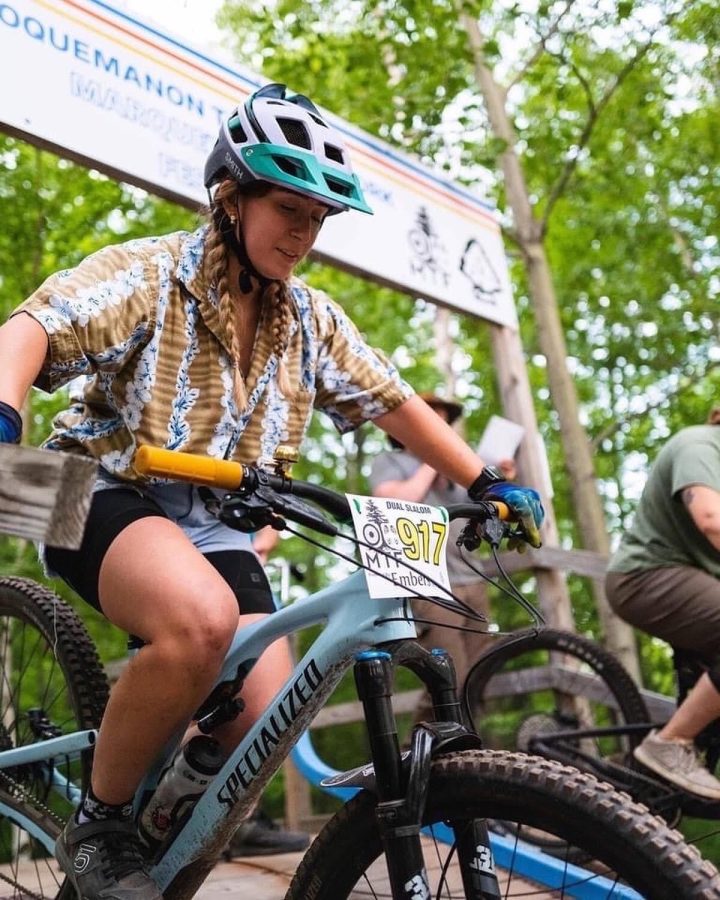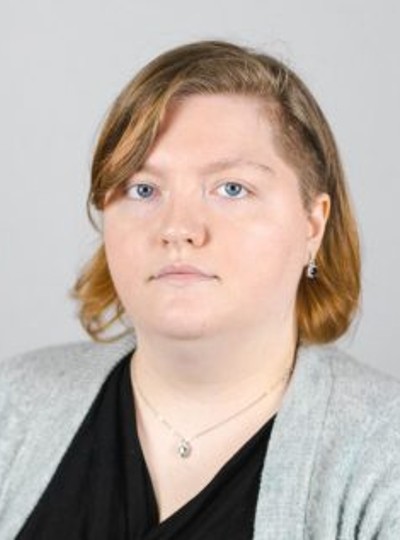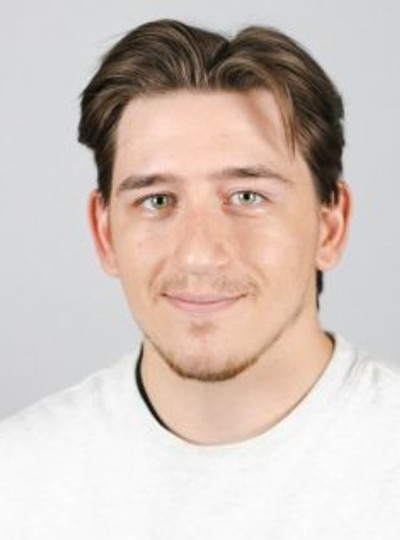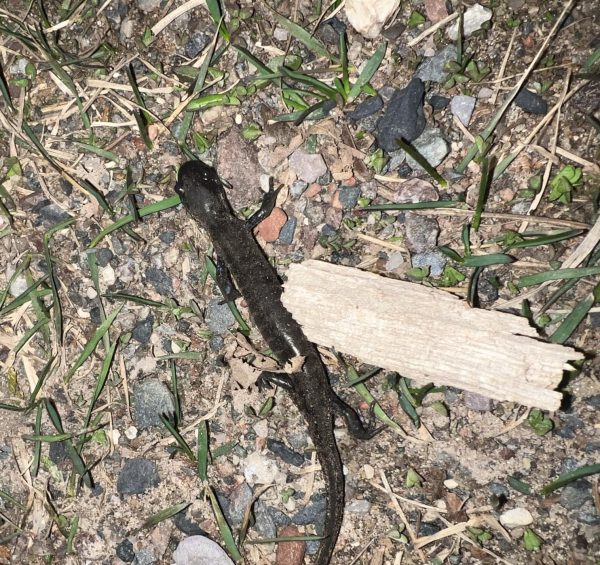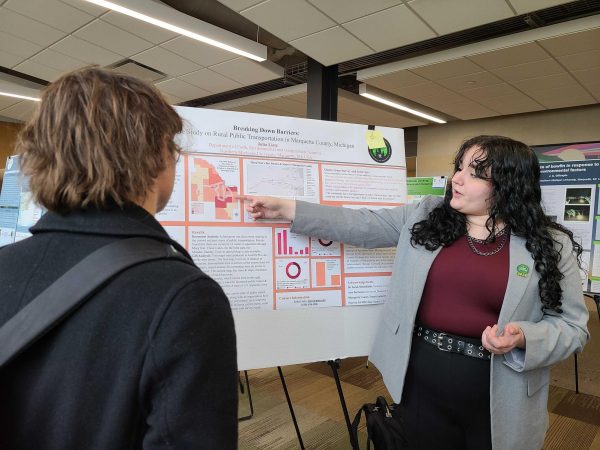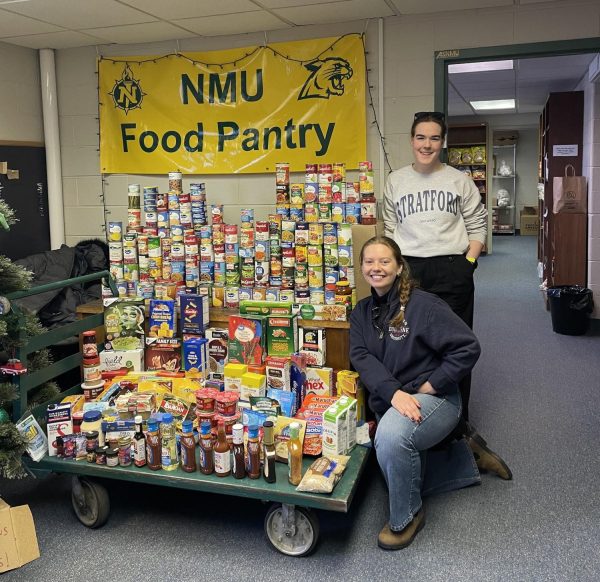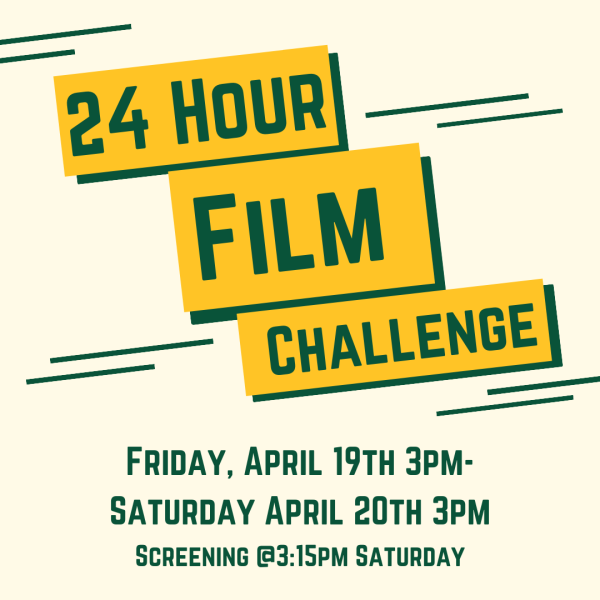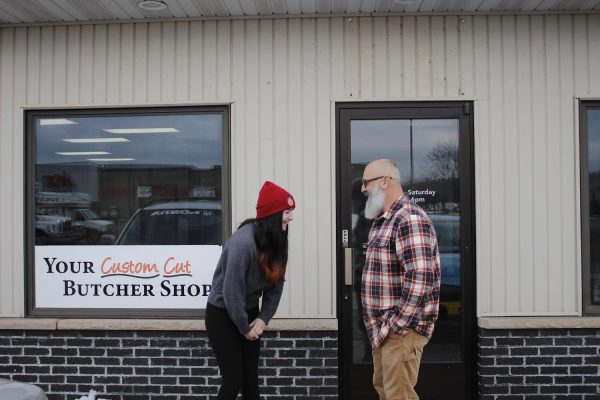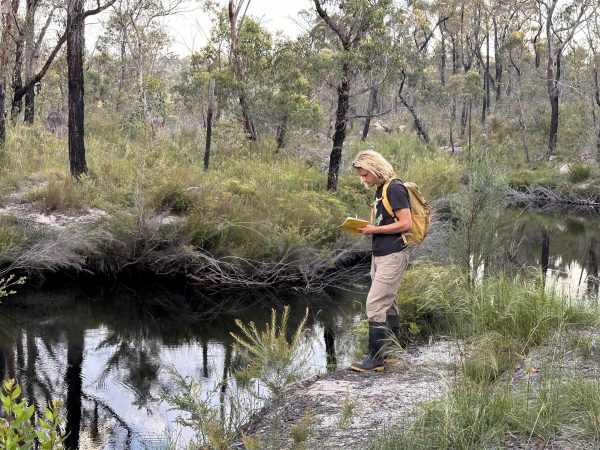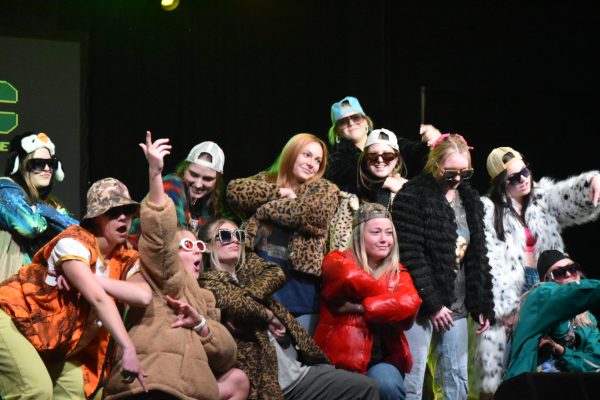Profile — Lauren Maki shares mountain biking journey
Lauren Maki prefers the technical rocky terrain of enuro-style bike racing and wants to make the sport more accessible to woman
Photo courtesy of Nick Jensen at Floline Media
ROCKY TERRAIN — Lauren Maki bikes at Marquette Trails Fest Dual Slalom last summer (2022).
March 29, 2023
When Lauren Maki was in fourth grade she hated mountain biking. Her dad and brother enjoyed it, and were trying to get her involved but she protested. This continued until she was in sixth or seventh grade, when her brother signed her up for a race. One that she didn’t want to do.
“I ended up doing the race and loving it,” Maki said.
According to Maki, a junior accounting major, most people around campus would know her for her biking. This time of year she tends to go biking at least five times a week, though in the summer she goes out riding every day.
“My dad guilt tripped me into doing the mountain biking team because he bought me this fancy bike. It was probably the best decision I ever made looking back on it,” Maki said. “That’s when I started racing competitively.”
Maki now only enduro style racing, which involves a lot more technical features, such as rocky terrain and other obstacles that are built into tracks for riders to navigate. Enduro racing also involves the riders climbing up hills and then riding down on the bike trails, though only the downhill stages are timed. There are usually five or six stages to a race, with each stage being one run on usually one trail.
“Personally I prefer technical rocky terrain. I like bombing through the really chunky rock gardens and that kind of stuff, but I like drops as well. I’m not a huge fan of gap jumps,” Maki said. “When you’re hitting a gap jump you have to have a certain amount of speed and if you don’t your front tire is going straight into the ditch.”
Maki has also done coaching for mountain biking, both here in Marquette and in her home state of Wisconsin. Back at home, Maki has been a part of a sponsorship program where kids were given bikes and the opportunity to try mountain biking.
“There was a kid that came to practice […], and he was just the crankiest kid you would ever meet,” Maki said. “The first time I saw him smile was when I took him on a mountain bike ride. I would see him just having so much fun at the races and he started to make friends. The day I left for college he came up to me, gave me a big hug, and said ‘I just wanted you to know, when you took me on that ride and I said I wasn’t having fun. I was having fun.’”
Maki has also expressed interest in getting more women involved in mountain biking. When she races in the women’s Open category, the equivalent to expert, she said that there were usually only ten women, and that at races there were usually 300 or 400 men for every fifteen women.
“Getting more girls involved is always good. That’s probably my passion in [mountain biking],” Maki said. “Being the only girl on my team I always wanted that companionship. There’s just so many fewer women. I wish I could make it more accessible for women because it appears like something only guys do. Creating more equity and diversity is always better.”




















